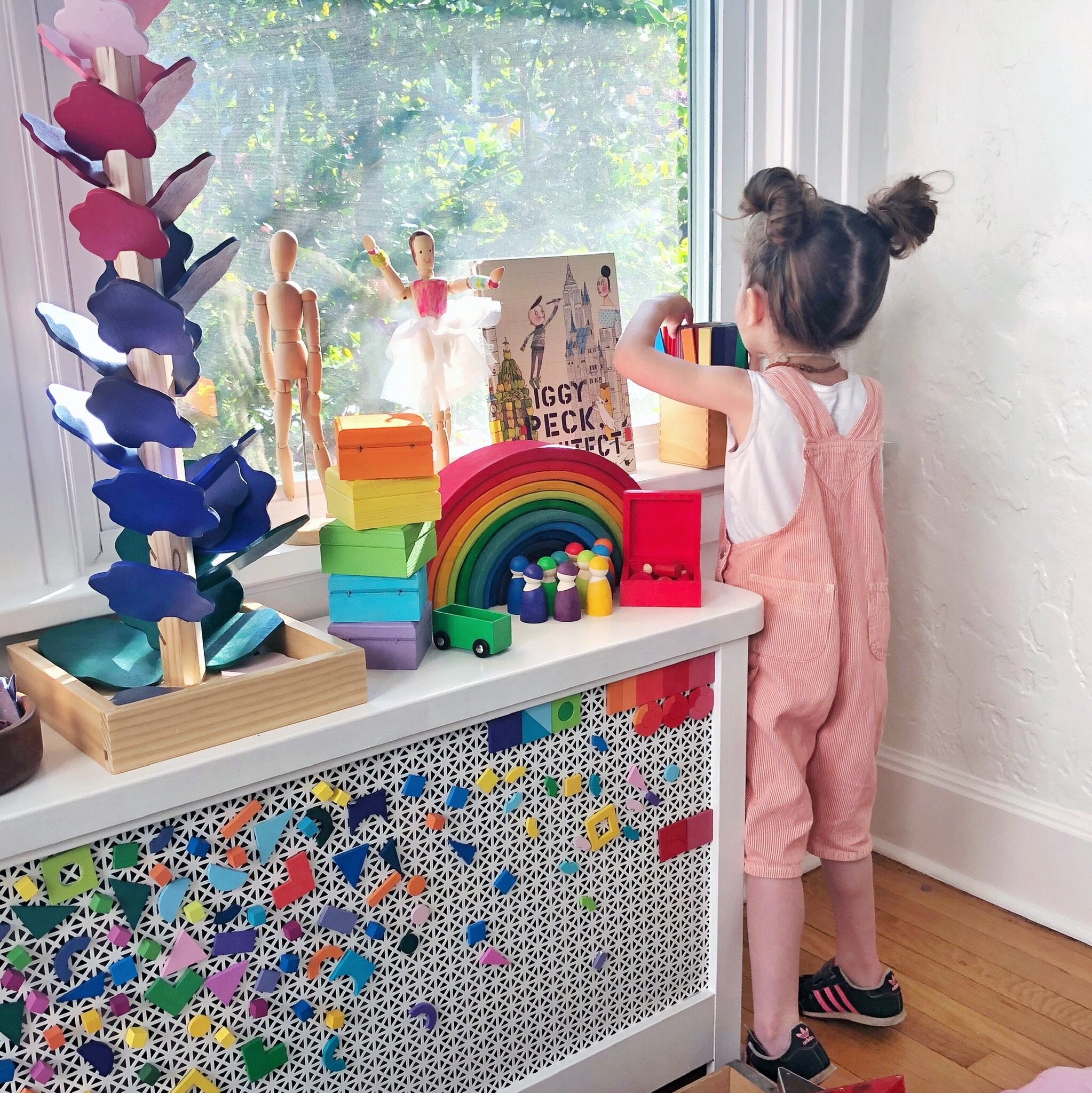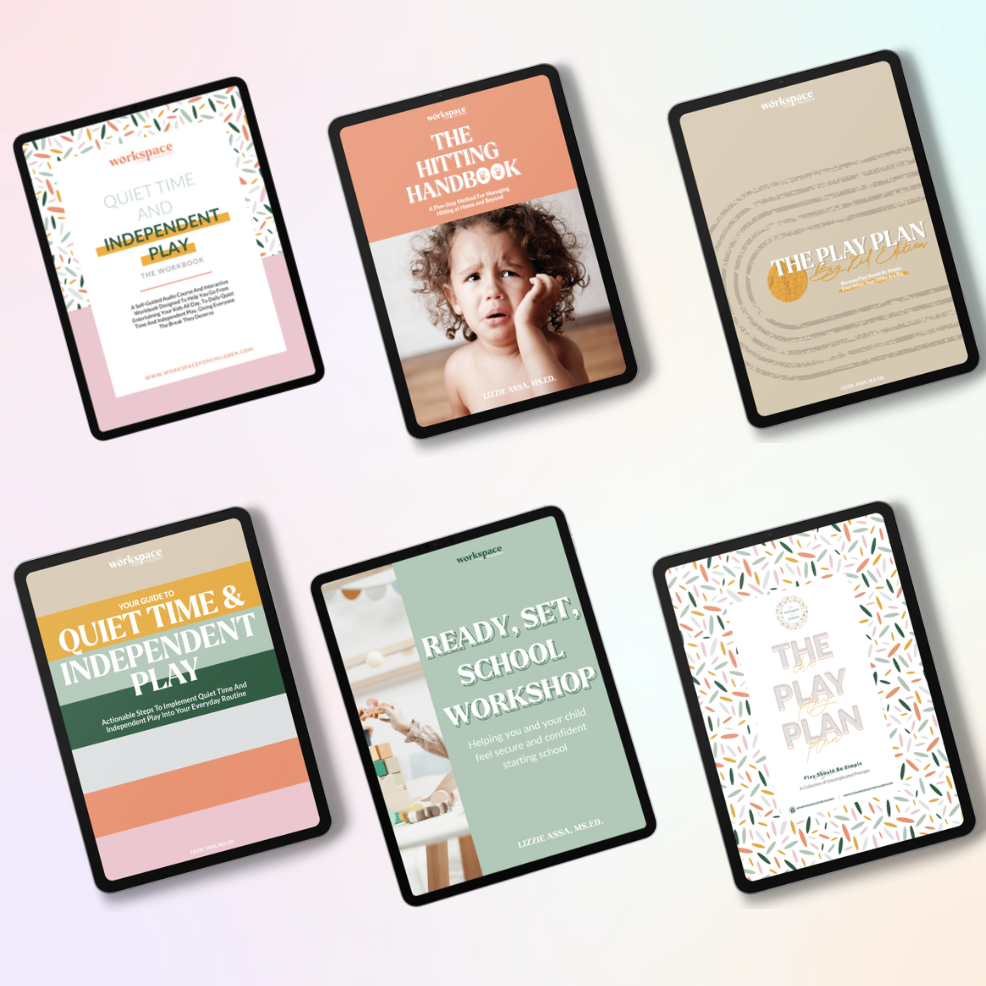Rough & Tumble Play: Why It's Vital for Kids and How to Guide It Safely
/Research shows that rough-and-tumble play helps kids learn to regulate and manage emotions.
*There is a growing body of evidence indicating the role of R&T in children’s development and learning, with benefits for physical health and development, social development, and aggression regulation. [Hart, J.L., & Tannock, M.T. (2018). Rough play: Past, present, and potential. In P.K.R.J.L. Smith (Ed.), The Cambridge Handbook of Play: Developmental and Disciplinary Perspectives (pp. 200-221). Cambridge University Press.]
How to redirect when it becomes too rough:
Remember, While children can often guide their play, as adults, it's our responsibility to set safe boundaries.
Instead of jumping in with, “Stop this roughhousing right now! You’ll kill each other!” Try narrating. “It looks like Ally’s not sure if she likes this game. Her face looks angry/ worried/sad. Let’s pause the game and ask her what’s happening.”
Support both children in having time to talk out whether they still want to play the game. Would they like to continue as is? Would they like to take a break? Maybe they can put some self-made rules into place. Let them take the lead and coach them through the conversation.
Here are some examples of how that might sound:
Adam, does pushing and wrestling feel okay to you? How will Ally know if you are starting to feel uncomfortable?
Drew, it might be hard for Sam to tell if you like being chased or not. You are smiling and laughing, and you are saying stop. Sam might be confused. Help us understand more clearly. Do you want to be chased? Or do you want them to play another way?
You are the adult in charge. Don’t be afraid to set a limit, even if the kids are all okay with the play. That might sound like this:
There are a lot of sharp edges in this room and rough play feels unsafe to me. Wrestling can happen in the basement on the gym mats or outside in the yard. You may not wrestle in the living room.
Your little brother is having fun playing this rough game with the bog kids. I can tell because he is laughing and smiling. I’m worried that you might hurt him by accident. Can you come up with a few rules to help keep him safe? I will stay here to supervise and help you keep him safe.
Sometimes, rough play gets too out of hand. Sometimes, you just aren’t in the mood for it. You know your children (and yourself) best. It is absolutely okay to say, “This doesn’t feel safe to me. It is time to play another way. Would you like to run races outside or play a board game together?” or “Five more minutes of this game and then it is time to choose something else to do. Tomorrow, you can play this way again.”
The next time your kids turn your living room into the WWF, remember these tips!







Rescuing them from discomfort also robs them of resilience.